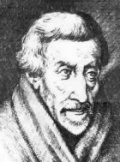St Peter Canisius

Jesuit Priest and Doctor of the Church. Peter Canisius worked tirelessly to defend the Catholic faith during the Protestant Reformation in Germany, Austria, Bohemia, Moravia, and Switzerland. The restoration of the Catholic Church in Germany after the Reformation is largely attributed to the work there of the Society of Jesus, which he led.
Peter Canisius was born in 1521 in Nijmegen in the Duchy of Guelders, which until 1549, was part of the Habsburg Netherlands within the Holy Roman Empire and is now the Netherlands. His father was the wealthy burgermeister, Jacob Kanis; his mother, Ægidia van Houweningen, who died shortly after Peter's birth. He was sent to study at the University of Cologne, he earned a Master's degree in 1540, at the age of 19. While there, he met Peter Faber, one of the founders of the Society of Jesus. Through him, Canisius became the first Dutchman to join the newly founded Society of Jesus in 1543.
Through his preaching and writings, Peter Canisius became one of the most influential Catholics of his time. He supervised the founding and maintenance of the first German-speaking Jesuit colleges, often with little resources at hand. Because of his frequent travels between the colleges, a tedious and dangerous occupation at the time, he became known as the Second Apostle of Germany.
Canisius also exerted a strong influence on the Emperor Ferdinand I. He ceaselessly cautioned Ferdinand of the imminent danger to his soul should he concede more rights to Protestants in return for their military support.
Canisius was an influential teacher and preacher, especially through his German Catechism', a book which defined the basic principles of Catholicism in the German language and made them more accessible to readers in German-speaking countries. He was offered the post of Bishop of Vienna in 1554, but declined in order to continue his traveling and teachings. He did, however, serve as administrator of the Diocese of Vienna for one year, until a new bishop was appointed.
He moved to Germany, where he was one of the main Catholic theologians at the Colloquy of Worms in 1557, and later served as the main preacher in the Cathedral of Augsburg from 1559 to 1568, where he strongly witnessed to his faith on three or four occasions each week. His preaching was said to have been so convincing that it attracted hundreds of Protestants back to Roman Catholicism.
By the time he left Germany, the Society of Jesus in Germany had evolved from a small band of priests into a powerful tool of the Counter Reformation. Canisius spent the last twenty years of his life in Fribourg, Switzerland, where he founded the Jesuit preparatory school, the College of Saint Michael, which trained generations of young men for careers and future university studies.
In 1591, at the age of 70, Canisius suffered a stroke which left him partially paralyzed, but he continued to preach and write with the aid of a secretary until his death in Fribourg in 1597. He was initially buried at the Church of St Nicholas. His remains were later transferred to the church of the Jesuit College, which he had founded and where he had spent the last year of his life, and interred in front of the main altar of the church. The room he occupied during those last months is now a chapel open to the veneration of the faithful.












